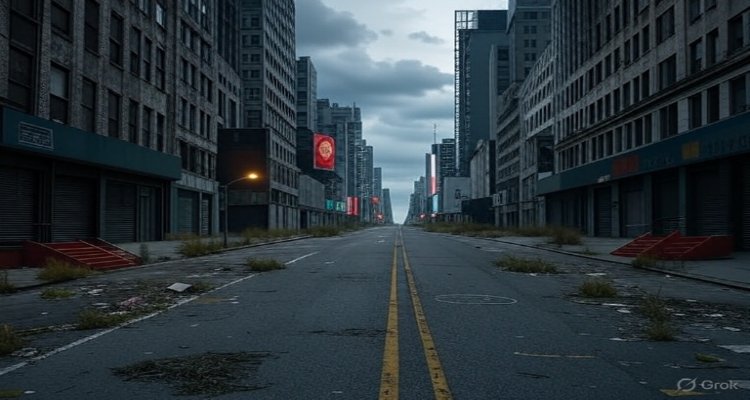Eerie Silences: Why Empty Cities Unsettle the Human Mind

Empty cities evoke unease, blending silence with echoes of lost life. Discover the psychology behind why deserted streets unsettle the human mind.
Introduction: The Haunting Quiet of Abandoned Streets
A city without people feels like a stage after the actors have vanished—buildings still stand, lights may flicker, but the script is gone. From deserted downtowns during pandemic lockdowns to crumbling ghost towns left behind by industries or disasters, the silence of empty cities unnerves us. They trigger emotions far deeper than simple loneliness, stirring an instinctive unease rooted in both psychology and human evolution.
Context & Background: When Cities Fall Silent
Human beings have always associated cities with life—markets buzzing with conversations, traffic rumbling, neon lights flashing above crowded sidewalks. When those same streets fall silent, the contrast is jarring.
- Historical examples: Ghost towns like Pripyat near Chernobyl or Centralia in Pennsylvania, abandoned due to disaster and danger, now stand as haunting reminders of lives abruptly interrupted.
- Modern experiences: During the 2020 pandemic, images of Times Square without its usual throngs or Milan’s Piazza del Duomo devoid of tourists shocked the world. The spaces were the same, yet their emptiness was unsettling.
The absence of people in environments built for crowds clashes with our expectations, creating what psychologists call a cognitive dissonance—our brains register something is “off.”
Main Developments: Why the Silence Feels So Wrong
The unsettling effect of empty cities isn’t just aesthetic—it’s biological and cultural.
Evolutionary wiring: For early humans, silence in a usually noisy environment often signaled danger—predators nearby, natural disasters looming, or a threat we couldn’t yet see. Our bodies still respond to this kind of “wrong silence” with heightened alertness.
Urban design for people: Cities are designed around movement and interaction. A subway station without commuters or a shopping district without chatter breaks the intended purpose of the space, leaving it feeling hollow and incomplete.
Echoes of loss: Empty cities can symbolize societal collapse, displacement, or tragedy. From Detroit’s depopulated neighborhoods to Fukushima’s radiation zone, absence reminds us of fragility—how quickly life can vanish.
Expert Insight & Public Reactions
Dr. Karen Ritchie, a cognitive psychologist, explains:
“The human brain interprets silence in a busy context as a warning. When a familiar place lacks its expected sounds and sights, we experience an emotional disconnect that borders on fear.”
Cultural critics also note how popular media amplifies this unease. Films like I Am Legend or video games such as The Last of Us draw on the imagery of empty cities, exploiting our innate discomfort for dramatic effect.
Public reactions mirror this. During global lockdowns, social media filled with comments like “It feels like the world ended” or “I never realized how much I needed background noise until it disappeared.”
Impact & Implications: What Empty Cities Teach Us
The phenomenon of eerie urban silences has deeper implications:
- Mental health: Prolonged exposure to deserted environments can heighten anxiety and depression, as the lack of social cues reduces feelings of safety and belonging.
- Urban planning: Understanding this discomfort may influence future design—creating spaces that can adapt during crises while maintaining a sense of human presence.
- Collective memory: Empty cities serve as living museums of history, reminding societies of resilience and the cost of human absence.
Ultimately, these silences reveal how much our psychological well-being depends on shared environments. We are social creatures, and cities are physical reflections of that need.
Conclusion: Silence That Speaks
Empty cities unsettle us not because of what we see, but because of what’s missing. The absence of people transforms familiar spaces into unfamiliar ones, awakening instincts that something has gone wrong. Whether caused by disaster, economic decline, or temporary pause, these eerie silences hold up a mirror to our dependence on human presence. In the end, they remind us of a truth we often overlook: cities are alive only when we are.
Disclaimer : This article is for informational and educational purposes only. It does not provide medical or psychological advice.










